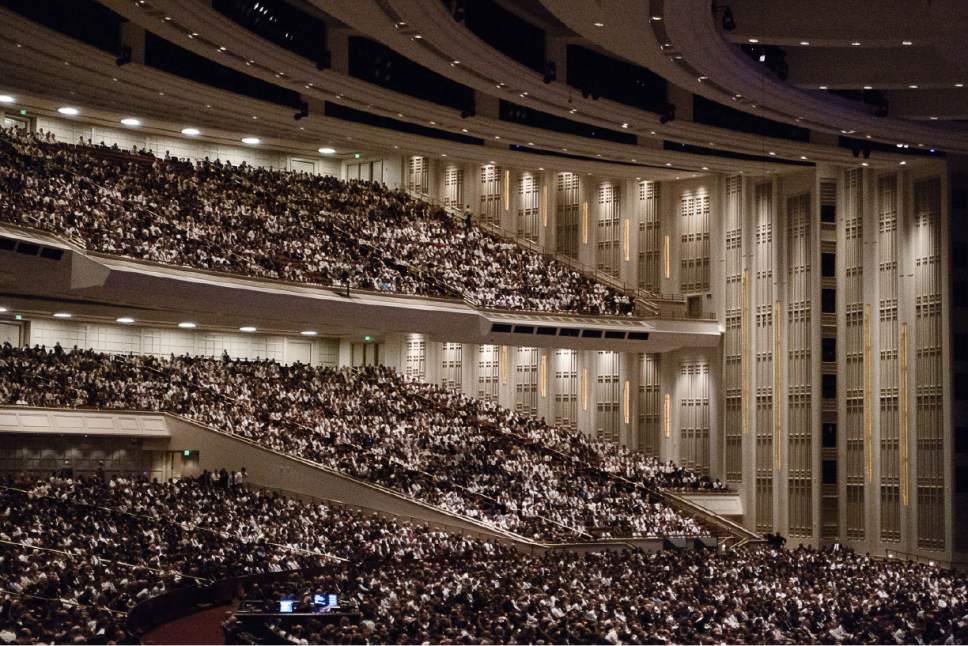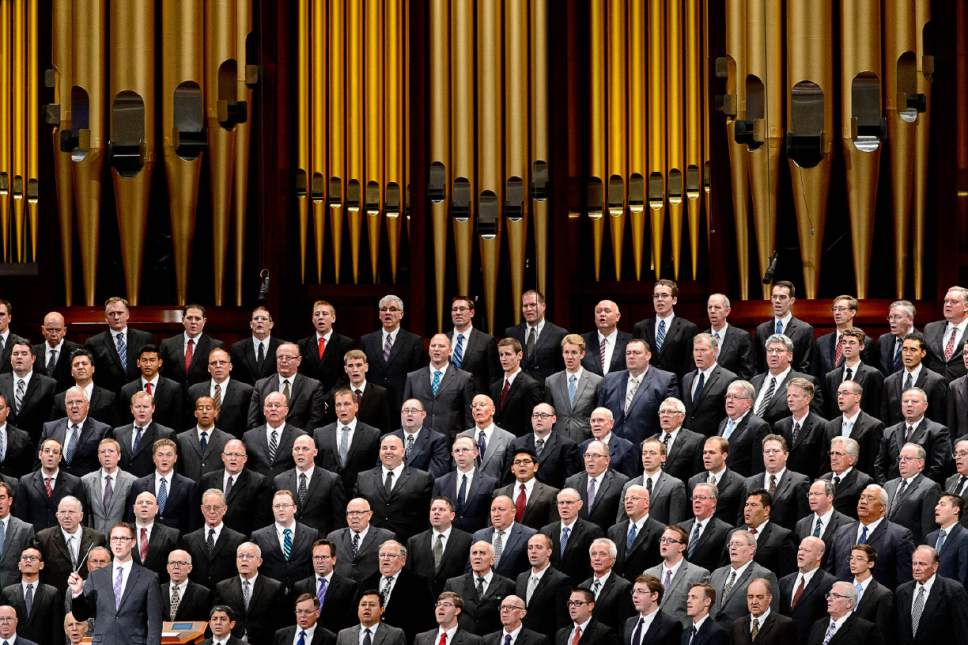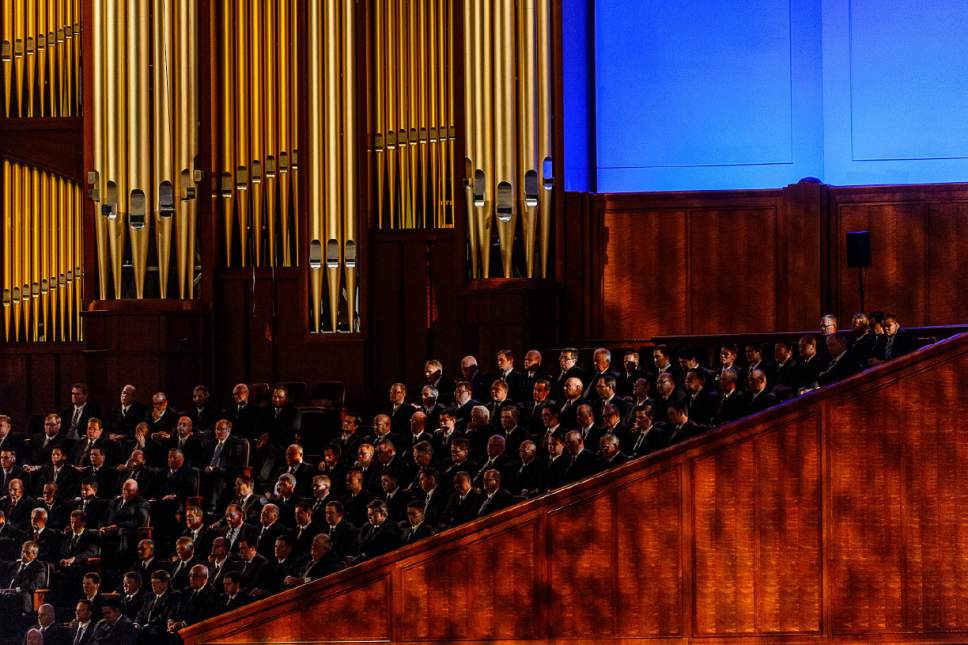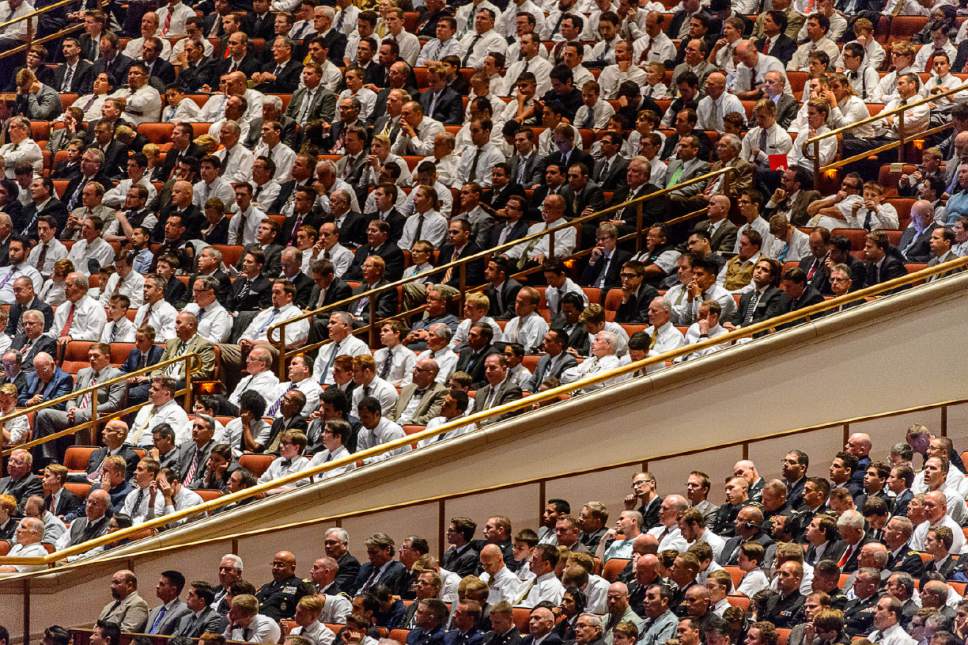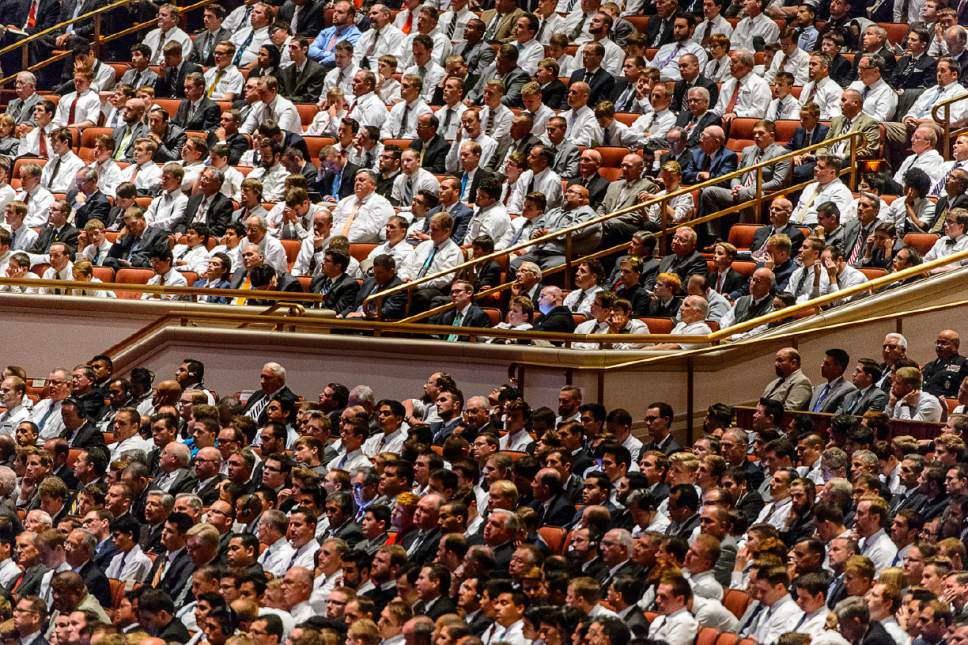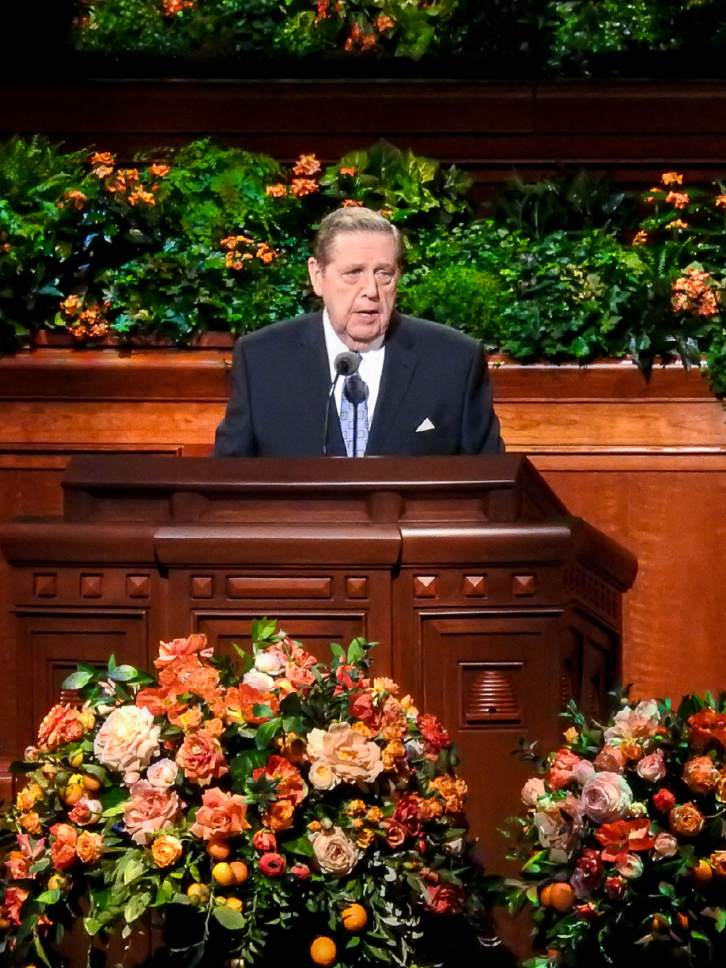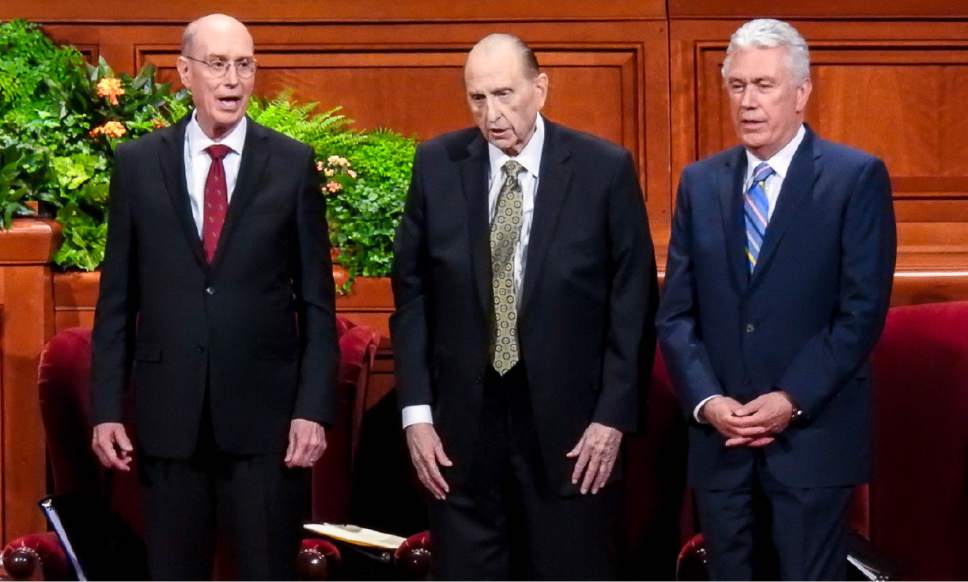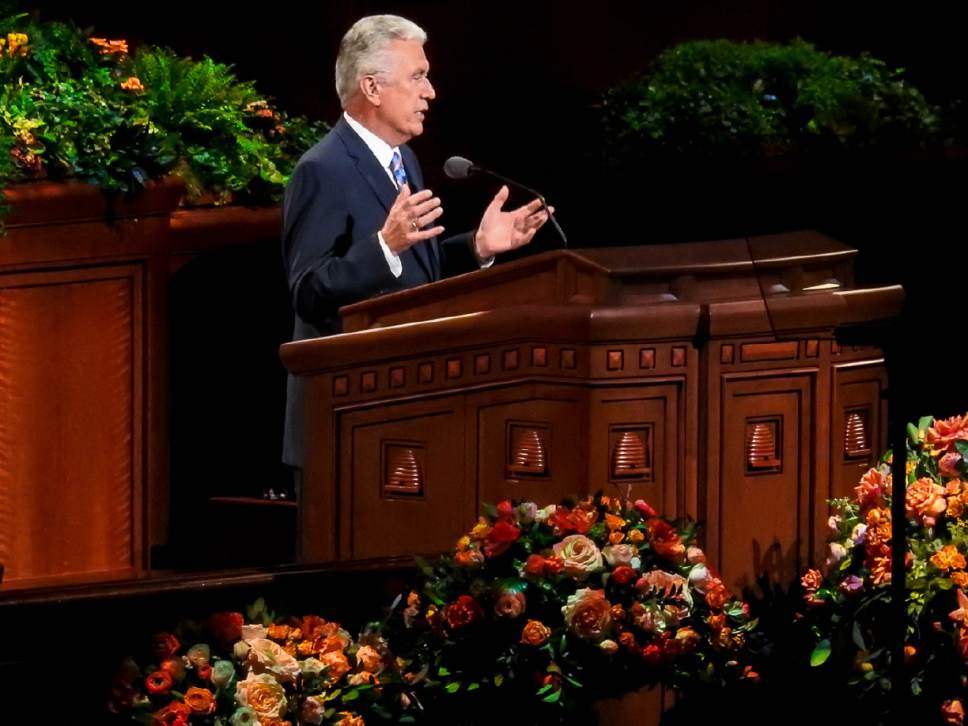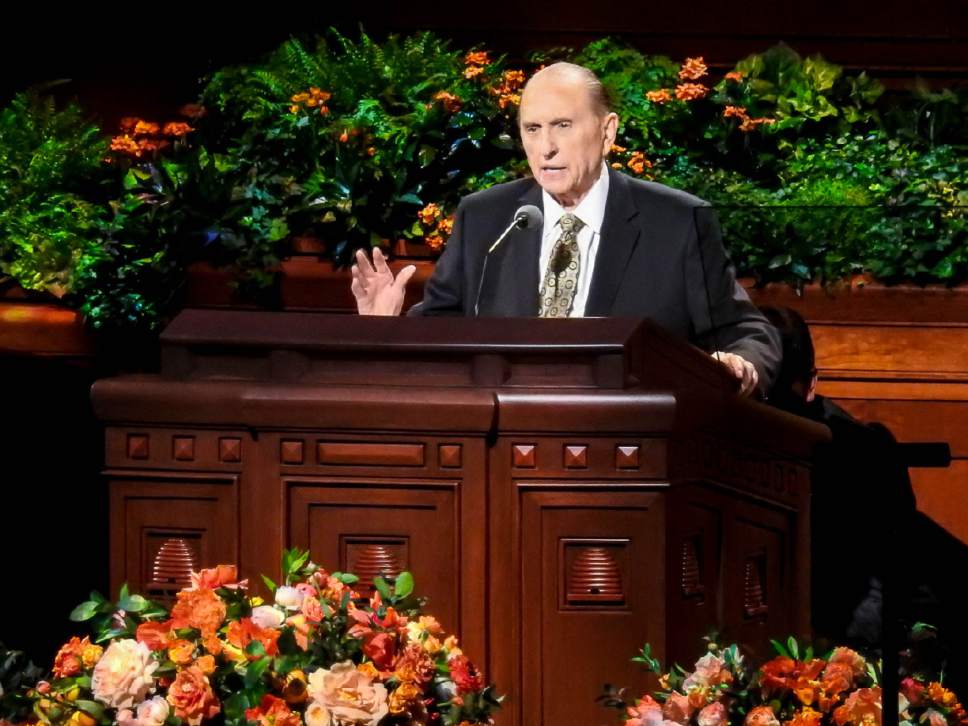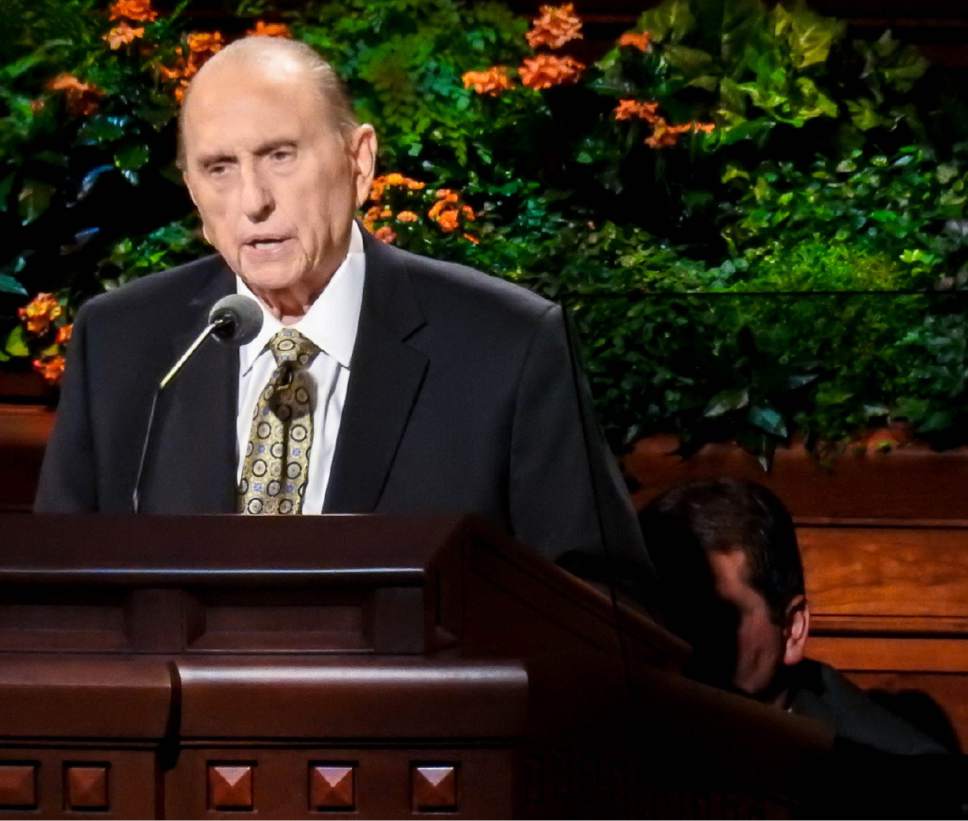This is an archived article that was published on sltrib.com in 2016, and information in the article may be outdated. It is provided only for personal research purposes and may not be reprinted.
He didn't speak first and he didn't speak long, but the comforting balm for faithful Mormons is that their increasingly frail leader spoke at all.
President Thomas S. Monson, who turned 89 six weeks ago and was helped to and from the pulpit by an aide, concluded Saturday's LDS General Conference sessions with a four-minute sermon about the "promised blessings" of "good health and added physical stamina" that follow a lifetime of adhering to the faith's health code known as the Word of Wisdom.
The 186th Semiannual General Conference of The Church of Jesus Christ of Latter-day Saints began Sept. 24 with a women's session. Monson, who the church has said is "feeling the effects of advancing age," attended that meeting as well, but did not give a sermon.
Monson, revered by Mormons as a "prophet, seer and revelator," attended all three Saturday sessions but has been reducing his speaking load at recent conferences. Last April, his two talks totaled about 10 minutes, representing his briefest stints at the conference pulpit in his 8½-year presidency.
Last October, Monson appeared to grow weak during an address. He finished his talk and was helped to his seat. At Saturday night's all-male priesthood session, he was helped to the pulpit by the aide, who crouched behind him while he spoke.
In a soft voice, the aged leader told a story of John A. Larsen, a Mormon who served in the Philippines during World War II.
During one battle, Larsen was plucked from a beach by a departing ship, but had to climb a 40-foot rope to board as the vessel pushed out to open water.
"After climbing only a third of the way, his arms burned with pain. He had become so weak that he felt he could no longer hold on," the Mormon leader recounted. "With his strength depleted, as he grimly contemplated his fate, John silently cried unto God, telling him that he had always kept the Word of Wisdom and had lived a clean life — and he now desperately needed the promised blessings."
Soon the solider "felt a great surge of strength," Monson said. "He began climbing once again and fairly flew up the rope. When he reached the deck, his breathing was normal — not the least bit labored."
Monson reaffirmed the importance of these principles in caring for human bodies and minds, calling it "a divinely provided plan."
Dieter F. Uchtdorf, Monson's second counselor in the governing First Presidency, told the assembled men and boys in Salt Lake City's Conference Center, to draw on their experiences of conversion and look for friends and associates who help build and sustain them.
He especially counseled LDS leaders at all levels to seek out others — "young or old, men or women, inexperienced, tired, or not active in the church" — in furthering the faith.
"Perhaps we think that we can do the work better by ourselves, or we are reluctant to inconvenience others, or we assume that others would not want to participate," he said. "Too often we hesitate to invite people to use their God-given talents and engage in the great work of salvation."
Uchtdorf also addressed those who have become less committed in their discipleship, the fire of their faith "dimmed," and who may have distanced themselves "from the body of Christ."
He recounted the story of a convert who had served a full-time Mormon mission, but in law school had discovered some "negative materials" and subsequently resigned his church membership.
Thanks to a longstanding friendship with a kind Latter-day Saint, the convert, who had developed a reputation as a church critic, began to feel the tug of the spirituality he once knew.
The man started to "listen to the whisperings of the Spirit and to inspired answers of friends, as he never had before," Uchtdorf said. "Eventually, [the man] entered the waters of baptism." He now tells the story of his spiritual transformation to any who will listen.
"It is my hope that those who have strayed from the path of discipleship — even by only a few degrees — will contemplate the goodness and grace of God," Uchtdorf said, "see with their hearts ... and hear the life-changing words of the savior, 'Come, follow me.' "
Apostle Jeffrey R. Holland spoke about the church's mandate to visit every family in the congregation at least once a month — a priesthood duty known as "home teaching."
"Brethren," the animated apostle said, "lift your vision of home teaching and in newer, better ways see yourselves as emissaries of the Lord to his children."
He instructed the men and boys to leave behind "the tradition of a frantic, Law of Moses-like, end-of-the-month calendar in which you rush to leave a scripted message from the church magazines that the family has already read."
Instead, Holland urged, focus on "genuine, gospel-oriented concern for the members, watching over and caring for each other in compassionate ways, addressing spiritual and temporal needs as best you can by any means possible."
Henry B. Eyring, first counselor in First Presidency, described how he had been praised and buoyed up as a young man and then encouraged older men today to do the same for those in the next generation.
"Priesthood leaders and fathers ... can work miracles," Eyring said. "You can fill the ranks of faithful elders with young men who accept the call to preach the gospel and do it with confidence. You will see many you have lifted and encouraged stay faithful, marry worthily in the temple, and, in turn, lift and prepare others."
David Noyce contributed to this story.
Twitter: @religiongal


